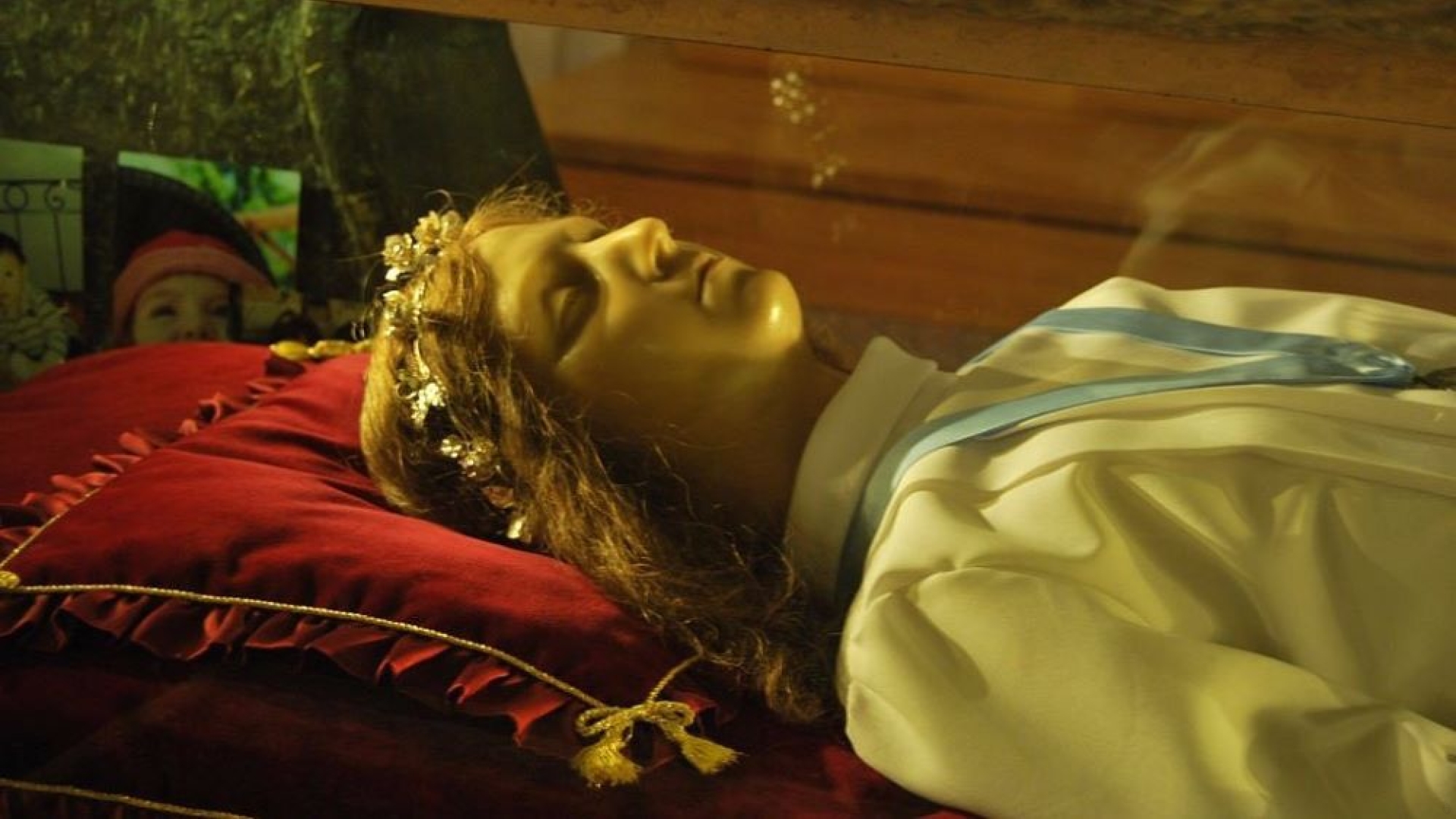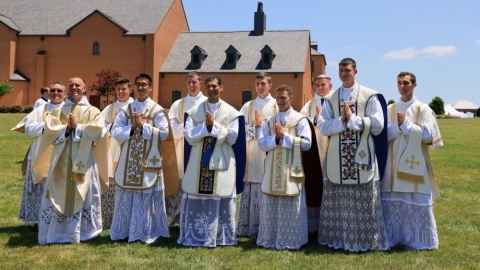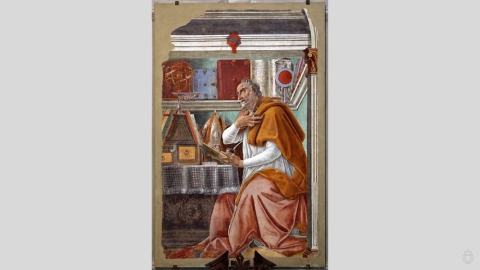The Gifts of the Holy Ghost (8): The Gift of Fear of the Lord

While the Church and her children celebrate the outpouring of the Holy Ghost during this octave of Pentecost, FSSPX.News offers an opportunity to discover a little better these seven gifts granted by God’s goodness to our souls in order to sanctify them. After meditating on the gifts of understanding, wisdom, knowledge, counsel, piety, and fortitude, we conclude with the gift of fear of the Lord.
St. Thomas teaches that there are various fears which do not all relate to the gift of fear of the Lord. He says in his Commentary on the Sentences that this variety comes from the fact that fear is defined as the “flight from evil.” Yet the evil is twofold: evil of wrongdoing or sin, and evil of punishment. There is therefore a twofold fear, one which especially flees from the evil of punishment, and the other from the evil of wrongdoing.
Worldly fear flees the evil of punishment, but this cannot be done without sin: like renouncing the Faith for fear of torture. This fear is human and wrong. Servile fear flees the punishment due to wrongdoing, above all eternal punishment; by avoiding wrongdoing, it avoids the punishment for it. This fear is good and opposed to worldly fear.
Through filial fear the soul flees wrongdoing, not because of the punishment, but to avoid offending God and being separated from Him. It can be imperfect if it is mixed with fear of punishment, and is called initial fear. It is perfect when charity has driven away all fear of punishment. Filial fear, reverential, and chaste, only fears offending God and it will remain in heaven.
Neither worldly fear nor servile fear are the gift of fear: the gift of fear of the Lord can only be filial fear because it is founded on charity, reveres God as Father, and fears being separated from Him by sin. This fear does not differ essentially from initial fear. The soul filled with filial fear knows the magnitude of sin and can no longer esteem good anything created by sin.
The gift of fear is linked on one hand to the theological virtue of hope, and on the other hand to temperance. The matter of the gift of fear, inasmuch as it concerns temperance, is all what has need of moderation. For what fear does above all is hold back the soul, in order to turn it away from evil.
St. Thomas adds: “the gift of fear principally considers God, whom it avoids offending, and in this respect it corresponds to the virtue of hope. But it also relates to all the things that the soul does to avoid sin. Yet man particularly needs divine fear to flee from the things which entice him the most and which are the matter of temperance; this is why the gift of fear also corresponds to temperance.”
Thus, fear taken in all its universality leads us first of all to revere God and to submit ourselves to Him, and to immerse ourselves in our smallness before this immense grandeur. In the second place, it leads us to flee evil so as not to be separated from God by wrongdoing. In the third place, it restrains and masters the soul, and thus prevents the expansion of concupiscence.
In summary: the gift of fear of the Lord, through the object which it reveres and to which it is subject, corresponds to theological hope, and suppresses the presumption which is opposed to it; but as for the wrongdoing or offense against God, which it flees and avoids, it can correspond to every virtue, because it leads to the avoidance of all sin. Nevertheless, through the effect that it produces in the soul it corresponds especially to temperance.
A beautiful example of this gift is given by St. Maria Goretti, who, animated by the fear of God, preferred to die rather than offend Him.
The chaste fear which leads the soul to flee all evil which would separate it from God, and to submit itself to God as to the sovereign and infinite grandeur, makes all pride disappear, and thereby it corresponds to the beatitude of the poor in spirit. Fear also suppresses all exuberant delectation of the flesh, and thus producing sorrow corresponds to the beatitude of those who mourn.
According to John of St. Thomas, The Gifts of the Holy Ghost
(Source : MG – FSSPX.Actualités)
Illustration : Tripadvisor





